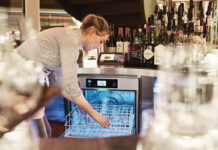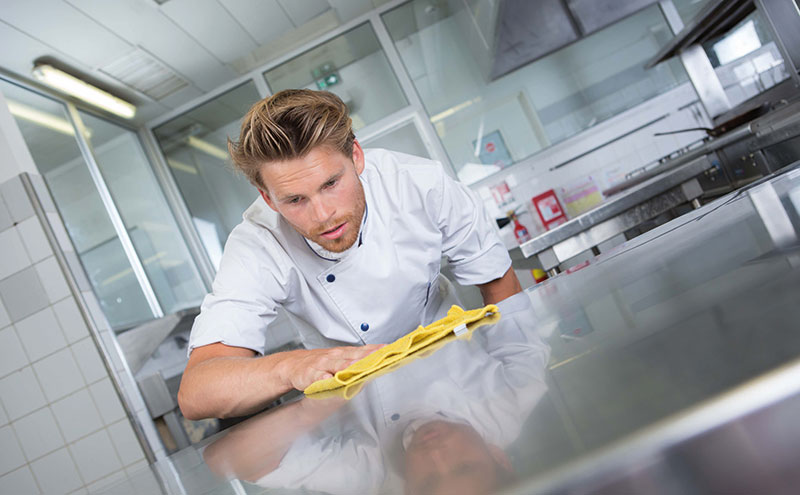Operators advised to ensure bar equipment has form as well as function

With customers looking for quality from the pubs and bars they visit, every square foot of a venue must be spot-on in terms of appearance as well as functionality.
And this definitely extends to the back-bar and the equipment on and below it.
The importance of the back-bar to an outlet’s operation was laid bare by Bob Wood, director of DC Warewashing and Icemaking Systems.
He said: “Smooth and efficient operations behind the bar are a vitally important part of running a successful, practical and trouble-free back-bar operation.
“Get workflow wrong or purchase the wrong equipment and you can end up with bottle necks, increased stress and frustration levels among employees, compromised hygiene standards, potential health and safety issues and ultimately downward pressure on efficiency and profitability.”
It’s also important that the equipment on the back-bar conveys style and standards to those looking to choose their next drink, according to Jonathan White, marketing manager at catering equipment firm Mitchell & Cooper.
He said: “To entice customers, operators should choose barware that looks great on its own but that also works with the aesthetic of the outlet, specifically the bar area.
“Quality barware is an investment that can make all the difference when preparing a drink.”
As new cocktails and serves are added to drinks menus, Rob Blunderfield, marketing manager of Parsley in Time, said operators should consider sourcing new and appropriate glassware for each serve to “showcase the drink to its best advantage”.
Kathryn Oldershaw, marketing director for Utopia, agreed.
She said: “Consumers are increasingly knowledgeable about drinks. They will expect drinks to be served in the appropriate glass – and getting it right will enhance their experience.”
When it comes to ice machines and warewashers for the back-bar, there are a number of factors for operators to consider before making a decision.
Bar owners should look for equipment which is “easy to operate, easy to look after and gets the job done efficiently and effectively,” according to Paul Crowley, marketing development manager at warewashing specialist Winterhalter.
A regular service prolongs the life of the machine and reduces the likelihood of breakdowns.
Craig McLaughlin, Sims Automatics’ specialist in commercial glasswashers and ice-making machines, said: “When purchasing or leasing new equipment consider more modern machines with LED and newly-designed condensers, which should in turn mean less servicing and downtime.”
Regular servicing of back-bar equipment is said to be essential to keep them in top condition and avoid unexpected breakdowns.
“A regular service prolongs the lift of the machine but it will also reduce the likelihood of breakdowns,” said Crowley of Winterhalter.
“Having downtime in your bar is not something that you should be gambling on. It affects table turnaround, staffing and profits.”
That stance was reinforced by Malcolm Harling, sales and marketing director at Williams Refrigeration.
He said it is “vital” that units are regularly serviced, adding that well-maintained equipment will use “significantly less energy”.
Finally, suppliers stressed the need for operators to ensure all staff fully understand the serious health and safety implications that bad practice with ice can lead to.
Adam Byron, national sales manager at Hubbard Systems, said: “Making sure staff understand the importance of keeping your ice machine clean is an important step in the process of ensuring only uncontaminated ice is served.”
Commercial director at Foodservice Equipment Marketing, Mark Hogan, echoed that view.
“The supply chain needs to ensure that staff are thoroughly trained and understand the danger that poor ice hygiene creates,” he said.























